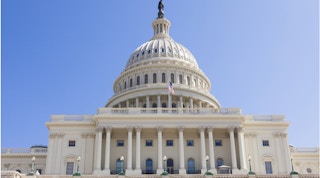
Cookies in use
Therapeutic Fraud Prevention Act

The Therapeutic Fraud Prevention Act amends the Federal Trade Commission Act to clarify that providing conversion therapy to any person in exchange for monetary compensation or advertising such services is an unfair or deceptive act or practice.
119th Congress: H.R 3243; S. 1663
The Problem
So-called “conversion therapy,” sometimes referred to as “sexual orientation change efforts” or “reparative therapy,” is a range of practices that seek to change an individual’s sexual orientation or gender identity. These practices are based on the false premise that being lesbian, gay, bisexual, transgender, or queer (LGBTQ+) is a mental illness that needs to be cured, a theory that has been rejected by every major medical and mental health organization. There is no credible evidence that conversion therapy can change a person’s sexual orientation or gender identity. On the contrary, research has shown that conversion therapy poses dangerous health risks for LGBTQ+ young people. The use of these harmful practices can lead to depression, decreased self-esteem, substance abuse, homelessness, and even suicidal behavior.
A 2018 Williams Institute report estimates that approximately 20,000 LGBTQ+ minors in states without protections will be subjected to conversion therapy by a licensed health care professional before the age of 18. The report found that approximately 698,000 LGBTQ+ adults in the U.S were subjected to the practice at some point in their lives—350,000 of whom were adolescents at the time.
California, Colorado, Connecticut, Delaware, Hawaii, Illinois, Maine, Maryland, Massachusetts, Minnesota, Nevada, New Hampshire, New Jersey, New Mexico, New York, Oregon, Rhode Island, Utah, Vermont, Virginia, Washington, and the District of Columbia have enacted laws or regulations to protect minors from being subjected to conversion therapy by state-licensed mental health providers. A growing number of municipalities have also enacted similar protections, including more than ninety cities and counties in Arizona, Colorado, Florida, Georgia, Iowa, Kentucky, Michigan, Minnesota, Missouri, New York, Ohio, Pennsylvania, Washington, and Wisconsin. North Carolina, Wisconsin, and Michigan have restricted the use of public funds for conversion therapy through executive action.
Medical and Mental Health Organizations
Conversion therapy has been universally criticized by the American Psychiatric Association, American Psychological Association, American Medical Association, and every other mainstream medical and mental health organization. In addition, in an October 2015 report entitled “Ending Conversion Therapy: Supporting and Affirming LGBTQ Youth,” the Substance Abuse and Mental Health Services Administration (SAMHSA) states “interventions aimed at a fixed outcome, such as gender conformity or heterosexual orientation, including those aimed at changing gender identity, gender expression, and sexual orientation are coercive, can be harmful, and should not be part of behavioral health treatment.”
What is the Therapeutic Fraud Prevention Act?
The Therapeutic Fraud Prevention Act would officially classify the provision and advertising of conversion therapy in exchange for monetary compensation as fraudulent practices. While the Federal Trade Commission (FTC) already has the authority to prohibit this form of consumer fraud, the Therapeutic Fraud Prevention Act would expressly direct the FTC to protect consumers from these harmful and discredited practices.
The FTC exists “to protect consumers by preventing […] deceptive and unfair business practices.” Conversion therapy providers engage in misleading and deceptive practices based on the false and discredited belief that one’s sexual orientation and gender identity can be changed, resulting in tremendous harm to consumers.
Current Status of the Bill?
The Therapeutic Fraud Prevention Act was reintroduced in the House of Representatives by Rep. Ted Lieu (D-CA) and in the Senate by Sens. Patty Murray (D-WA) and Cory Booker (D-NJ) on May 7, 2025.
For more information, please contact legislation@hrc.org. Read about other federal legislation pertinent to the LGBTQ+ community here.
Last Updated: May 20, 2025
- Topics:
- Laws & Legislation
Love conquers hate.
Image:

